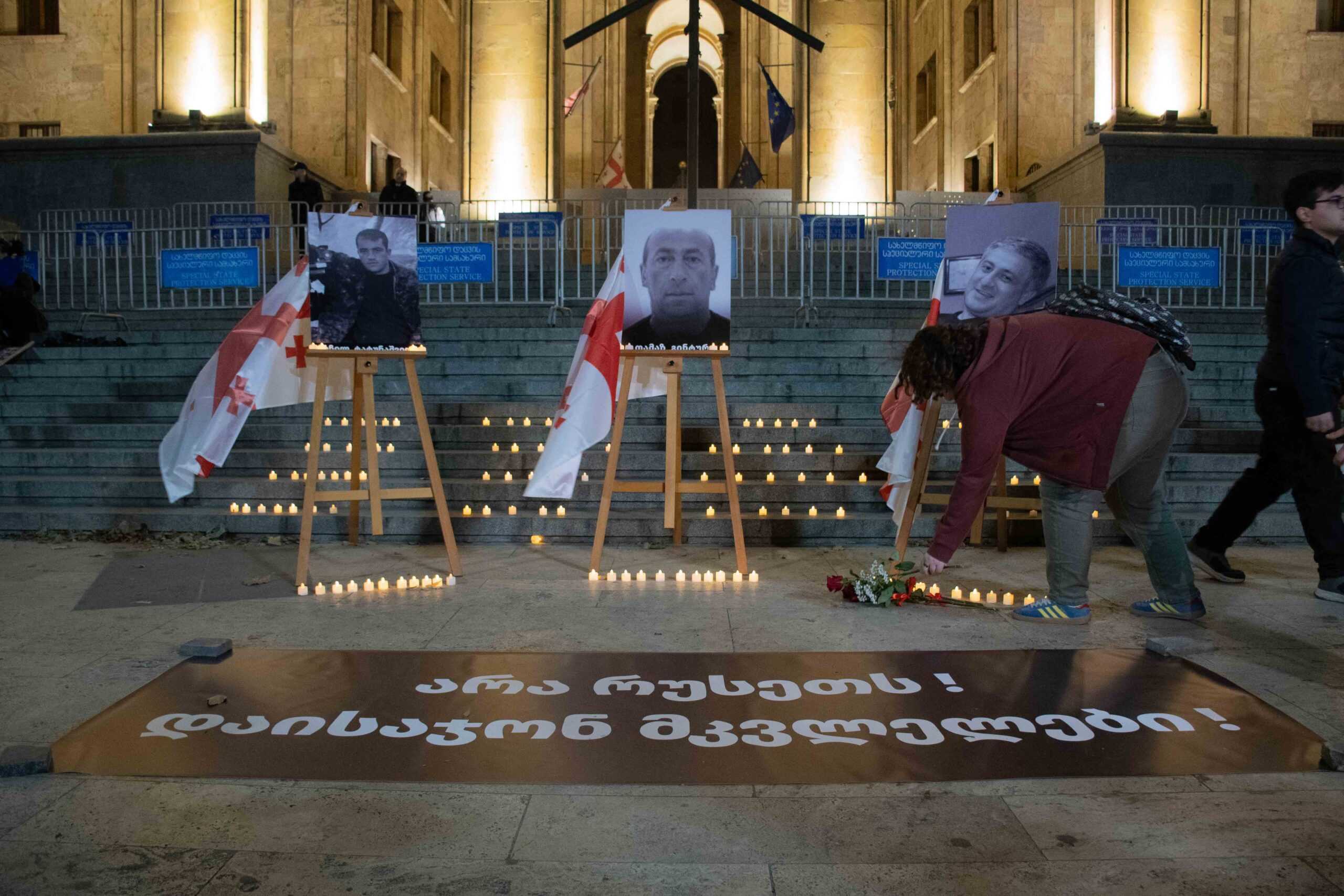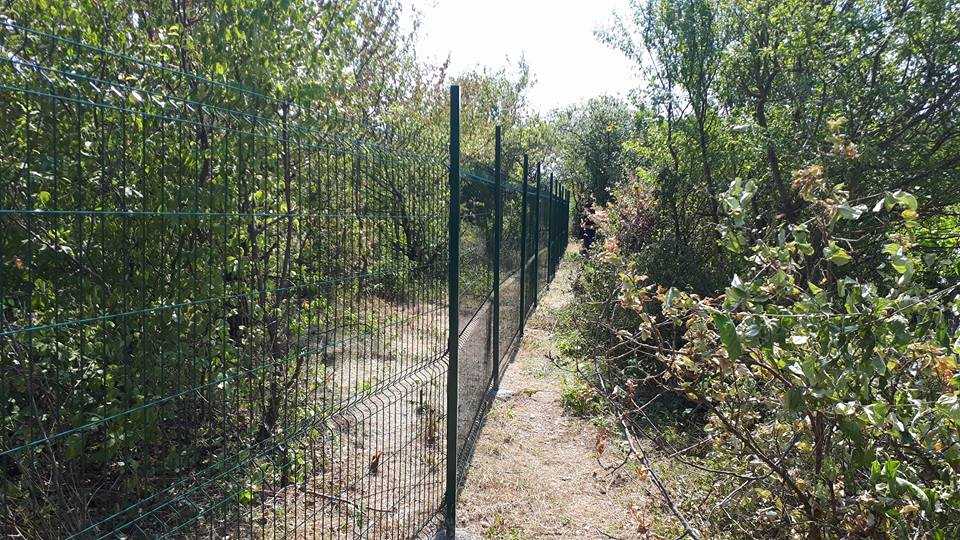
On Thursday, South Ossetia released a Georgian national who was captured after visiting a disputed church near Kirbali earlier this week.
Levan Dotiashvili was captured by Russian border guards in South Ossetia on Monday night. He was accompanied by Tamaz Papitashvili and Tamaz Ginturi.
Ginturi died after being wounded by Russian border guard gunfire, while Papitashvili had left before the incident took place.
[Read on OC Media: Russian troops fatally shoot Georgian in South Ossetia]
Initially, it was believed that only Ginturi and Dotiashvili had attempted to reach Lomisi, a church near Kirbali that is under South Ossetian control. However, the South Ossetian authorities released footage filmed on Ginturi’s phone by a third individual later identified as Papitashvili.
Footage from his release into Georgian custody shows Dotiashvili walking towards a group of local journalists accompanied by Irakli Antadze, the State Security Service’s (SSG) deputy director of the analytical department. Dotiashvili refused to give comment to the press at the time, but Antadze confirmed that the captured man had sustained an injury to his face when he was detained.
Antadze said that Dotiashvili will be questioned as a witness to Ginturi’s death.
‘A criminal case has been initiated. The Ministry of Internal Affairs is conducting an investigation’, he said.
Dotiashvili spoke to media the following day, stating that he and Ginturi had spoken to the Russian border guard who had shot at their car. He said that the guard had only opened fire at the car after they started moving, shooting and injuring Ginturi.
South Ossetian authorities claimed that the Russian border guard was attempting to shoot out their tires.
Afterwards, Dotiashvili said, he and the Russian soldier took Ginturi out of the car, and Dotiashvili asked if he could call an ambulance for Ginturi.
He said that seven more Russian soldiers arrived to handcuff him and drag him away ‘in the direction of the forest’.
Dotiashvili added that he was detained in Tskhinvali (Tskhinval), where he was interrogated. He said that he was ‘not insulted’ or put under pressure.
Following his release, the SSG stated that on Monday, the Georgian and Ossetian authorities, representatives from the Russian army, and the EU Monitoring Mission held a meeting in Ergneti to discuss his release.
The South Ossetian security services, the KGB, stated that they would be releasing Dotiashvili on Thursday evening.
‘Taking into account that the investigation of the incident was carried out promptly and in full, and also based on humanitarian considerations, a decision was made to expel [Levan] Dotiashvili to Georgia’, read their statement.
The KGB claimed that Dotiashvili told them that he, Ginturi, and Papitashvili, were aware of where the administrative border line started, ‘but deliberately violated it under the influence of local activist Ginturi Tamaz, a supporter of [ex-president of Georgia Mikheil] Saakashvili’.
The KGB also stated that the three Georgian nationals were inebriated.
‘The culprits will be punished’
After news of the incident broke, the opposition criticised the ruling Georgian Dream party for their ‘collaborationist’ and ‘conciliatory’ policies towards ‘the enemy’, while, senior members of Georgian Dream shifted the blame on the previously ruling United National Movement, citing the legacy of their time in power.
In Europe, German MEP Viola von Cramon offered her condolences to Ginturi’s family and held Russia responsible for his death.
Russia kills. It kills in Ukraine, Syria &, of course, in Georgia.
🇬🇪 has 200 years of experience under 🇷🇺occupation to know that appeasing a bully never works. Only by standing together against evil can we defeat it. My condolences to the family of yet another victim of 🇷🇺 https://t.co/fbM7nZACPU— Viola von Cramon 🇺🇦🇪🇺 (@ViolavonCramon) November 6, 2023
Josep Borrel, the EU’s foreign affairs representative, strongly condemned Ginturi’s killing and called for Dotiashvili’s immediate release.
In Moscow, Russia’s Foreign Ministry Spokesperson Maria Zakharova criticised the EU for its ‘politicised’ and ‘false’ assessments of the killing of Ginturi.
‘We are surprised by this position of the EU; they ignored obvious facts and detailed explanations from the Ossetian side that were given’, she said.
‘The most shocking thing is that Brussels is categorically trying to shift responsibility for what happened to Russia. These are politicised, one-sided assessments, false… All this indicates the obvious bias and engagement of the European Union’.
Several hours before Dotiashvili’s release, members of Georgia’s ruling party visited the village of Kirbali and stated that the ‘culprits will be punished’, and that Ginturi’s killers ‘had been identified’.
‘The investigation is ongoing, and when our state is given [the opportunity], there will naturally be a response. Criminals will be punished, they cannot hide from justice’, said Georgian Dream MP Irakli Zarkua.
For ease of reading, we choose not to use qualifiers such as ‘de facto’, ‘unrecognised’, or ‘partially recognised’ when discussing institutions or political positions within Abkhazia, Nagorno-Karabakh, and South Ossetia. This does not imply a position on their status.








